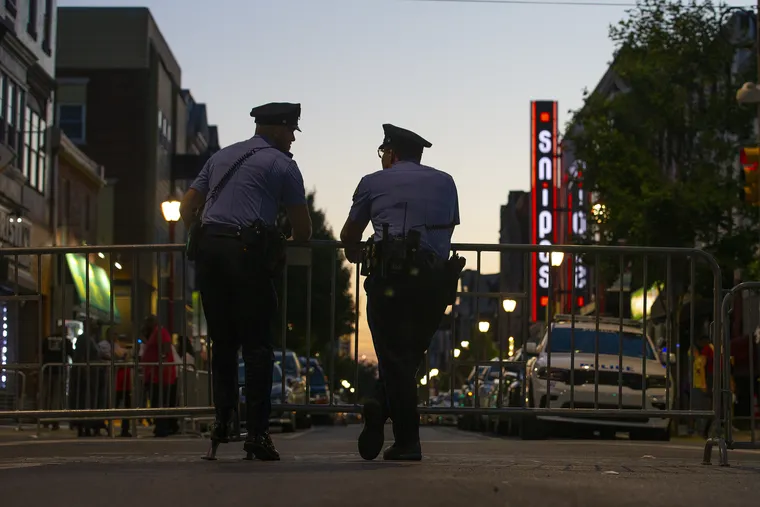Gray Collins ’25
The Philadelphia City Council voted to permanently mandate a curfew for minors in the city under Bill 220654 on December 1. The City Council mandated the curfew after identifying gun violence as a public health emergency in Philadelphia.
At one of the hearings for the bill, City Councilwoman Katherine Gilmore Richardson summarizes the effects of gun violence in Philadelphia, saying during a Committee on Public Safety meeting of June 16, “Just this year alone, we have witnessed shooting of ninety-two children under the age of eighteen, with twenty-three shootings occurring after 10 p.m.” Richardson believes that these statistics reflect a “state of emergency in Philadelphia.”
The curfew outlines that children 13 or younger have to be inside before 9:30 p.m. every night, and children aged 14 to 17 cannot be outside after 10 p.m. Discussing the reasoning behind the curfew, Richardson explains, “We are doing this from the perspective of elected officials, but also as community leaders and as parents to ensure the safety and well being of our young people… [Youth] are getting caught up in too much dangerous activity and too many fatal situations, a lot of them simply because they are out later at the wrong place at the wrong time.”
To enforce the curfew, the City Council plans to collaborate with the Philadelphia Police Department, the Department of Human Services, and Juvenile Justice Services. Inspector Francis Healy, Special Advisor to the Police Commissioner, thinks that the curfew is necessary to the safety of Philadelphia’s youth, as he emphasized during the Committee on Public Safety meeting on June 16, saying, “If we can save one kid from being shot out there, it’s a huge win and well worth all our effort. But, I do believe it will have a much bigger impact.”

Photo courtesy of inquirer.com
Kirsten Regan ’23, a resident of Philadelphia, reflects on the utilitarian application of the new mandate, saying, “I think that the new curfew can definitely be useful and beneficial in protecting and preventing youth from being caught in dangerous situations, especially given the rise of crime and violence in Philly. However, I think that for some kids in certain circumstances, the mandate may put their safety at a detriment if their households are in dangerous neighborhoods.”
The City Council believes that decreased funding and inaccessibility of education in Philadelphia is a major contributor to the increase in gun violence involving youth, and that this particular factor is yet to be addressed. In a Philadelphia Council Meeting on November 3, Councilman Ogbanna Hagins stated, “The so-called youth violence is really structural violence . . . Until we get to the root cause of violence and the problem, we’re going to continue to rehash what’s been rehashed for the last two or three decades in the city.”
Commenting on the lack of education accessibility, Richardson explains, “When there was a divestment in education in the commonwealth of Pennsylvania, it decimated a number of programs that offered wraparound services and academic enrichment. This is the environment that these young people have grown up in.” In the last two decades, budgeting previously intended for schools was directed elsewhere, leaving invaluable community programs unfunded. Some believe that the absence of these crucial services has increased crime rates among Philadelphia teens, as the Justice Policy Institute claims, “States with a higher proportion of residents with high school diplomas had lower violent crime rates.”
The curfew has drawn criticism from people that believe this plan will be unsuccessful in reducing gun violence rates. A Campbell Collaboration study claims, “The pattern of evidence suggests that juvenile curfews are ineffective at reducing crime and victimization.” The study found that curfews are ineffective because they are not consistently enforced by police and do not occur during the times of day with the highest amount of crime.
Classics teacher Stephen Bosio, who lives in Philadelphia, agrees with the study’s claim, saying, “I think that the mandate is a good idea, but I am not sure how a city that is so big can enforce it equitably.”
Richardson and President of the Public Safety Committee Curtis Jones Jr. believe that these issues will be addressed by pairing the curfew enforcement with evening community resource centers. Gary D. Williams, Deputy Commissioner for Juvenile Justice Services and the Department of Human Services, comments, “The centers are able to receive youth who have come to the attention of Philadelphia police after curfew violation. Staff members connect with youth to promote positive youth development with the emphasis of family engagement, conflict resolution, violence prevention, mentoring, coaching, and other service linkages.”
Richardson adds, “Community evening resource centers operate from the hours of 7 p.m. to 2 a.m. every day of the week and provide them with resources and to get their families connected with resources. These centers have been able to service over 300 young people since their opening in December of 2021.” City Councilwoman Helen Gym thinks that these results are promising and advocates for the opening and expansion of these centers. “I do think that the engagement of our young people right now has to be a top priority of our city,” she says.
I’jaaz Abdul-Malik ’24, another resident of Philadelphia, states, “I believe that the curfew is a good step in fighting crime in Philadelphia. [Although] it won’t affect me much because I don’t like to stay out late, at least in Philadelphia, it may be annoying to some, but it is definitely the right decision.”